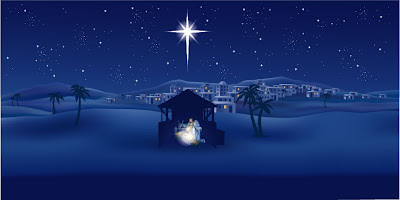 Image: George Mendoza
Image: George MendozaGood morning, good God!
It’s that time of year again, Lord:
time for resolutions…
No one knows better than you, Lord,
how poorly I’
ve done
in keeping resolutions I’
ve made
at New Year’s and on Ash Wednesdays
and all those other times
when I resolved to do this or that,
or to stop doing such and such
and then just a few days later…
So with the first of January just days away,
I resolve not to make any resolutions, Lord!
Instead, I offer you
the new year on the horizon,
2009…
I offer you the new year, Lord,
trusting that you plan on adding
another whole year to my life…
I offer you my heart for this year ahead
and pray that you soften what’s hard in it;
that you smooth its rough edges;
that you heal its brokenness –
not so much for my sake –
but for those who will count on my heart
and its love
in the new year…
I offer you my mind in this new year
and pray that you help me sort through
some of my doubts and confusion;
that you sharpen my mind with truth;
that you expand the narrows of my mind
and open me to wonders I don’t yet know…
I offer you my body in this year ahead, Lord:
help me respect and care for the flesh and bone
that give form to my soul;
get me out of bed, off the couch and up from the chair
and move me, shake me, walk me, strengthen me
and my mortal frame
for the work you give me to do…
I offer you my time in 2009, Lord:
teach me not to waste the precious time you give me;
fill my days with energy and the will
to live by your word and work for your glory;
fill my nights with deep and restful sleep;
show me what you would make of my life
in the new year ahead…
I offer you my imagination in the new year, Lord:
make my thoughts pure, my dreams sweet,
my intentions just, my ideas honest, my plans firm,
my goals true, my hopes rooted in your promises…
In the new year, Lord,
I offer you those you’
ve entrusted to my care:
any who look to me and lean on me
for support and care and hope…
make me faithful to those who depend on me…
but make me not so strong, Lord,
that I fail to depend and lean on those
whom you’
ve provided
for the times when I need support and strength…
I offer you my bounty in the year ahead, Lord:
help me know the difference
between what I desire and what I truly need;
teach me to share what I have,
especially when I have more than I need;
teach me to see others’ needs before my own
and to care for them before I care for myself…
I offer you, Lord, the challenges of the year ahead:
give me the wisdom and strength I'll need
to confront and work through them..
And I offer you the burdens and sorrows
the new year will bring:
give be strength to carry them
and the consolation to bear with them...
I offer you the joys of the new year, Lord:
let me not miss one of them, let me delight in them
and let me share them with others...
I offer you the year ahead, Lord,
with its months as 12 new chapters
in the book of my life:
help me see the story of your love
in the days of each month;
show me the clues that solve the mysteries
that confuse and baffle me;
let me see how these new chapters
rise up from what has been
and lead to what is yet to come;
be the author of these 12 chapters, Lord,
and let your words and your story
shape the person you created me to be…
I offer you the new year, Lord,
and pray that I will come to its end
in your peace
and in the embrace of your arms…
Amen.
-ConcordPastor



























